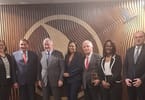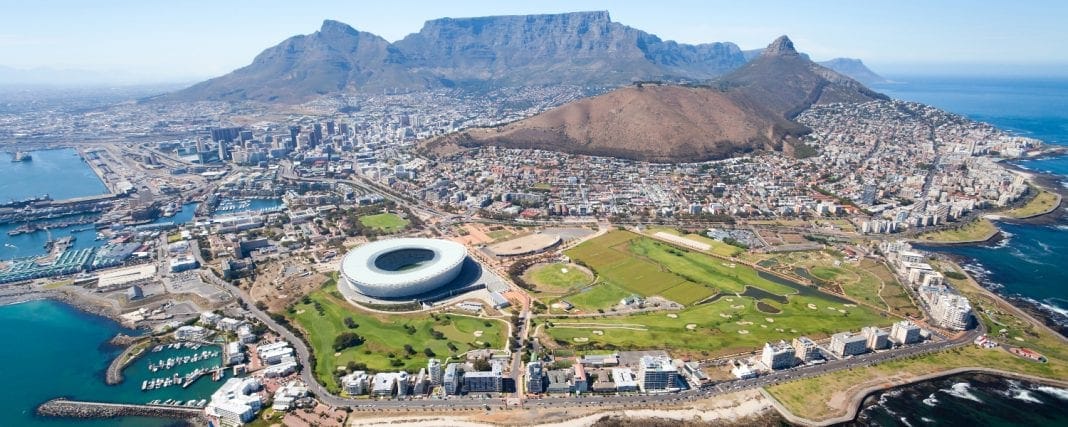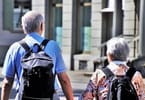In his keynote address, US President Clinton addressed the 1,000 international delegates of senior tourism leaders at the 13th annual World Travel & Tourism Council Global Summit (WTTC) in Abu Dhabi. He was speaking to international delegates of senior leaders in the travel and tourism industry challenging them to take the mantle of economic responsibility with tourism as the game changer.
“I spent a lot of time when I was President, trying to end wars, prevent killing, and promote understanding. What I have seen is that peace works better than conflict, and one of the best manifestations of it is in travel and tourism.
Referencing the Balkans conflict of the 1990s, President Clinton cited the resurgence of Croatia, which saw a 50% increase in tourism revenues in the year following the Bosnian peace agreement, and 300% growth in the decade following.
Tourism sector development and its role in economic prosperity is a long-term challenge. “I worry a great deal about the interdependent world we live in. If you look at the mounting inequality along with mourning prosperity, along with political and financial instability and the challenges we have from climate change, I think it’s fair to say that the future of the 21st century has not yet been written,” he said.
Building on comments made earlier in the day by Taleb Rifai, Secretary-General of the UN World Tourism Organization (UNWTO), President Clinton used examples from the work of the Clinton Foundation to demonstrate the ripple effect of tourism industry-related initiatives in helping developing nations, citing the UNITAID project, where funding from France in the form of revenues raised from international air ticket taxes buys medicines for HIV-affected children in Africa.
According to the former US President, the potential of ancillary economic benefits generated via tourism are also often overlooked, yet provided unlimited opportunity for creativity and big-picture thinking.
“In Colombia, we met a group of women who had been literally blown out of their native villages and resettled along a river to grow spices. They decided to make Colombia the center of organic spices, so the [Clinton] Foundation reorganized their marketing and got hotels to use their products and market them, and we quadrupled their income,” he said, adding, “If you do that, it embeds the industry in the local community and builds support that is more human than political.”
He also urged the hotel industry specifically to develop internship programs in every country in which they operate, so that young people have an accessible means of experiencing another culture from an early age. “What you do for a living is good for the Earth, the children, and the future.”
Linking into the issue of sustainability, which is a key focus for the Clinton Foundation, he believes that the industry is also a force for change in the future. “I predict that we over the next 20 years, the travel and tourism industry, will lead a re-examination of our energy industry policies. The fact that you have such a great stake in a global stable environment gives you enormous credibility.
“I believe that by simply expanding tourism and in ways that promote sustainability, [this] reminds people of our common humanity. One of the reasons that I’m glad to be here today is because I think that just because of what you do and how you live, you will always be on the right side.”
Drawing on his years in the White House, in the Q&A session, David Scowsill, President & CEO, World Travel & Tourism Council, took the opportunity to ask President Clinton what he thought were the qualities of a good leader.
“First of all, any leader in any business needs to have some basic understanding of the world we are living in, that it is the most interdependent age in history, and understand what does that mean in my line of work?” he remarked.
He also used Abu Dhabi’s own diversification vision as a poster child for economic growth. “Oil wealth repurposing, [is] a good example of what can be done. Here, they are trying to do intelligent things with their wealth.”
WHAT TO TAKE AWAY FROM THIS ARTICLE:
- Building on comments made earlier in the day by Taleb Rifai, Secretary-General of the UN World Tourism Organization (UNWTO), President Clinton used examples from the work of the Clinton Foundation to demonstrate the ripple effect of tourism industry-related initiatives in helping developing nations, citing the UNITAID project, where funding from France in the form of revenues raised from international air ticket taxes buys medicines for HIV-affected children in Africa.
- They decided to make Colombia the center of organic spices, so the [Clinton] Foundation reorganized their marketing and got hotels to use their products and market them, and we quadrupled their income,” he said, adding, “If you do that, it embeds the industry in the local community and builds support that is more human than political.
- Referencing the Balkans conflict of the 1990s, President Clinton cited the resurgence of Croatia, which saw a 50% increase in tourism revenues in the year following the Bosnian peace agreement, and 300% growth in the decade following.






















